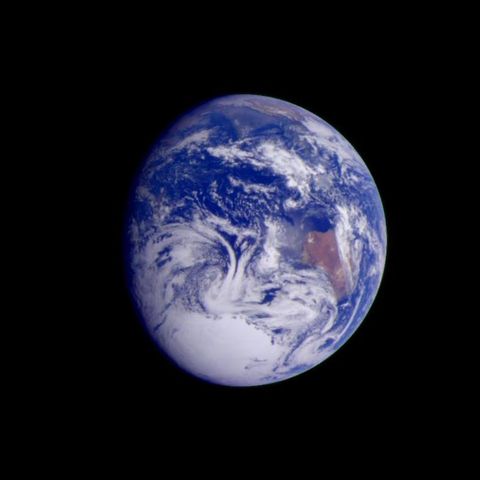73: The best estimates yet of Earth’s composition
Sep 20, 2017 ·
50m 31s

Download and listen anywhere
Download your favorite episodes and enjoy them, wherever you are! Sign up or log in now to access offline listening.
Description
*The best estimates yet of Earth’s composition Astronomers have determined the most accurate estimate yet of the Earth’s core, finding it makes up 32.5 per cent of the planet’s total...
show more
*The best estimates yet of Earth’s composition Astronomers have determined the most accurate estimate yet of the Earth’s core, finding it makes up 32.5 per cent of the planet’s total mass. The findings are part of a new understanding of the Earth’s composition, which will help scientists develop new methods to determine if exoplanets orbiting distant stars are likely to be capable of supporting life. *New supernovae study reframes the Dark Energy debate A new study claims the accelerating expansion of the universe may not be real, but could just be an apparent effect. The study claims the fit of Type Ia supernovae to a model universe with no dark energy appears to be very slightly better than the fit for the standard dark energy model. *Curiosity climbing a Martian ridge NASA's Mars Curiosity rover has begun the steep ascent up an iron-oxide-bearing ridge that's grabbed scientists' attention since before its arrival on the red planet in 2012. The Vera Rubin Ridge stands prominently on the north western flank of Mount Sharp, resisting erosion better than the less-steep portions of the mountain below and above it. *Expedition 53 Launches to the International Space Station The Russian Soyuz MS-06 capsule carrying the Expedition 53 crew has successfully docked with the International Space Station as both spacecraft flew 400 kilometres above the southern Pacific Ocean off the coast of Chile. The docking with the station’s Space facing Russian Poisk module took place six hours after the Soyuz FG rocket launched from the Baikonur Cosmodrome in in the central Asian republic of Kazakhstan on a fast rendezvous flight path. *Russian Proton launch It’s been a busy time for Russia with a Proton-M rocket successfully launching from the Baikonur Cosmodrome carrying the Amazonas-5 telecommunications satellite into geostationary transfer orbit. The mission was only the third for the Proton since its return to flight status following its latest grounding following a string of recent failures. *The Science Report New research has discovered that patients with age-related macular degeneration carry signs of the disease in their blood. A new study has found the small fraction of papers denying climate change are all either biased or contain basic flaws in science. Warnings that up to 85 percent of people living with HIV/AIDS suffer from chronic pain. Generating power out or urine. New research claims a mysterious ancient creature called Dickinsonia was definitely an animal. Video for the Soyuz launch is at: https://www.youtube.com/watch?v=Eqsq3nKhe5M And the video for the capsule docking is at: https://www.youtube.com/watch?v=vbFpagSZsGU For Enhanced Show Notes, including photos to accompany this episode: http://www.bitesz.com/spacetime-show-notes Subscribe, rate and review SpaceTime at all good podcasting apps…including iTunes, Google Podcasts, Stitcher, Pocketcasts, Podbean, Radio Public, Tunein Radio, google play, etc RSS feed: https://audioboom.com/channels/4642443.rss Learn more about your ad choices. Visit megaphone.fm/adchoices
See acast.com/privacy for privacy and opt-out information.
show less
See acast.com/privacy for privacy and opt-out information.
Information
| Author | bitesz.com |
| Organization | bitesz.com |
| Website | - |
| Tags |
-
|
Copyright 2024 - Spreaker Inc. an iHeartMedia Company
